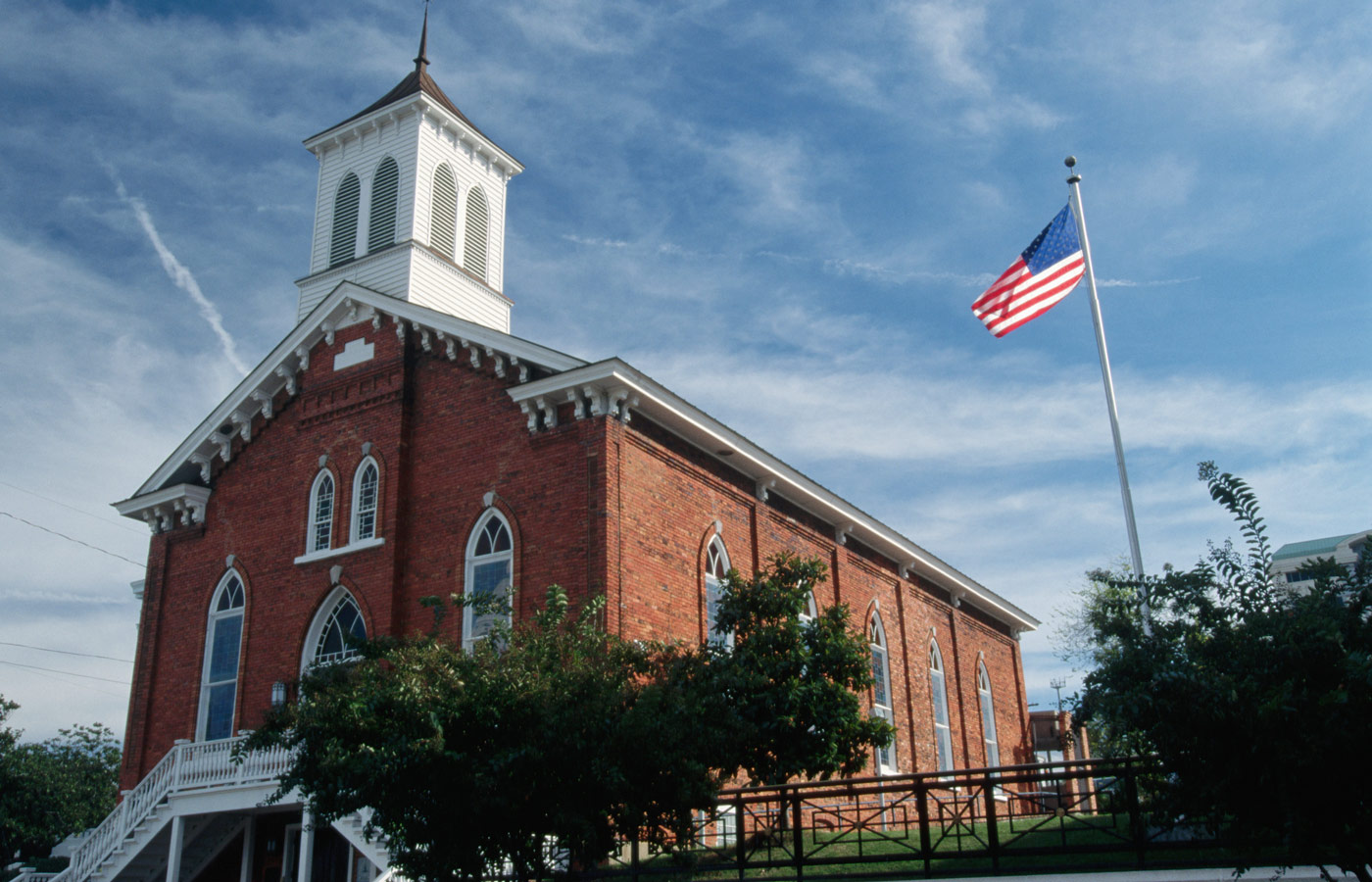EV Road Trip Guide: Honoring Black History Month
A guide to educate drivers on EV ownership while exploring and celebrating Black History sites.

Heading out on a road trip to explore Black history through the U.S. South is a transformative experience. Road trips are exciting adventures that represent freedom, and they’re a great way to get close to history. Going on a road trip in an electric vehicle (EV) takes that experience to a whole other level.
Kick off Black History Month, AAA EV Road Trip Guide that educates drivers on EV ownership while exploring Black History sites in Georgia and South Carolina. To help with range anxiety AAA has provided a map with EV charging stations that are included in the guide for those who are ready to hit the road on this iconic adventure.
Defining the future, EVs add a layer of symbolism to Black history, which is often moving towards progress for freedom. Let's look at a five-state road trip that celebrates courage and the richness of Black history in the United States, along with some tips to help EV drivers enjoy a trouble-free trip.
Tips for a successful EV road trip
Preparing for an electric vehicle road trip is similar to prepping for a trip in a traditional gasoline-fed car. But there are a few additional things to consider.
Check your tires, windshield wipers, brakes and tire pressure. Since EVs don't have combustion engines, there is no need to worry about getting an oil change before leaving—because there is no oil to change. However, before you leave it is essential that you research charging station locations along your route. Various smartphone apps are available to determine how far it is between each charging station. Be sure to download the AAA Mobile App that provides maps of charging stations, restaurants, hotels and more!
Also, be sure to pack charging adaptors in your emergency kit, as not every electric vehicle uses the same charge port on their car. Those charging adaptors could be the difference between having a full charge and getting stranded.
Speaking of a full charge, some stations will give a quick charge of 30 minutes, while others may take up to several hours. Finding charging stations near restaurants, museums and hotels will help avoid a lot of anxiety on the road, as you’ll accomplish other things while your car’s battery is charging.
While EVs are on trend, it's important to note that there are many electric car charging deserts throughout the United States, and many are located in communities of color. Approximately 2% of EV owners are African American, but that is beginning to change as more people embrace electric vehicles and Black founders of EV-charging startups enter the industry.
These places share stories of civil rights struggles and African American successes.
Read about the importance of Black History Month
EV Southern Black History Road Trip
We put together another longer road trip to utilize for planning both an in range EV trip, but also that is rich in Black culture and heritage. This particular trip begins in Sarasota, Florida where the first “wade in” took place in 1955 and winds through historic locations in several other southern states that are of importance to the Civil Rights Movement.
Lido Beach -- Sarasota, Florida
Starting Point
Sarasota is part of the Civil Rights Trail on the southwest coast of Florida. In 1955, Black residents organized a protest to integrate Lido Beach. They waded into the water, and their peaceful protest became the first known instance of what became known as a “wade-in.” Visitors can also explore Newtown, which was the African American part of Sarasota.
Oldest Incorporated Black Municipality -- Eatonville, Florida
137 miles from Sarasota
Six miles north of Orlando, Eatonville is the oldest incorporated Black city in the United States. In 1887, Eatonville was founded by freed enslaved people and developed into a vibrant all-Black city. It is the hometown of author Zora Neale Hurston and one of the locations in her Harlem Renaissance novel Their Eyes Were Watching God. Today, visitors can easily walk this small town. The best time to learn more about the town and its famous daughter is during the annual Zora! Festival, which takes place in January.
Bethune-Cookman University -- Daytona Beach, Florida
50 miles from Eatonville
Head northeast to visit the historic Black college, Bethune-Cookman University. Dr. Mary McLeod Bethune founded the university, which has been an important part of Daytona Beach since 1904. Visitors can tour the campus, including Dr. Bethune's home, where she welcomed guests such as Eleanor Roosevelt. Afterward, head to Jackie Robinson Ballpark, where the first Black man to integrate modern baseball played his first Spring Training game.
Ritz Theater -- Jacksonville, Florida
90 miles from Daytona Beach
The largest city by square miles in the contiguous United States, Jacksonville offers plenty of opportunities to explore Black history. Since you're on an EV road trip, take a tour with Explore Jax Core Tours. Owner Yollie Copeland uses an electric, road-legal golf cart to transport visitors to historic African American sites around the city and tell the stories of those who might otherwise have been forgotten. Next, head to the Ritz Theater, originally one of the city’s Black movie theaters and that has since been refurbished into a museum with artifacts from African American life in the city. Also, look for the Jax Melanin Market in historic East Jacksonville, which features Black vendors.
Ray Charles Plaza -- Albany, Georgia
200 miles from Jacksonville
The trip's next leg is long (be sure you have a full charge!) as you head from Florida into southern Georgia. Full of history, Albany is home to the Albany Civil Rights Institute, the HBCU (Historically Black Colleges and Universities) Albany State University and the Ray Charles Plaza. Charles, born in Albany, participated in many benefit concerts to support civil rights causes and refused to play a segregated show in Georgia in the early 1960s.
James Brown, Otis Redding and Little Richard Hometown -- Macon, Georgia
100 miles from Albany
With 21 sites to absorb African American history, Macon is a great stopping point to explore for a few days. In the hometown of musicians James Brown, Otis Redding and Little Richard, there's plenty of live music to enjoy.
Martin Luther King National Historical Park -- Atlanta, Georgia
85 miles from Macon
Birthplace of Martin Luther King, Jr., Atlanta is a mecca for Black leaders and advocates, which makes it another location worth spending several days in. The MLK Jr. National Historical Park includes several sites, including a visitor center and his childhood home. The Atlanta History Center often has exhibits on Black history. And don't miss the National Center for Civil and Human Rights. With interactive activities, a history of the civil rights movement in the U.S., and the Morehouse College Martin Luther King, Jr. Collection, it's a must-see for anyone in the area.
Civil Rights National Monument -- Birmingham, Alabama
150 miles from Atlanta
Once referred to as "Bombingham," Birmingham has a dark history with civil rights. By acknowledging where they've come from, the city has taken responsibility and is educating the public in multiple ways. The Birmingham Civil Rights National Monument has seven affiliated sites, including the 16th Street Baptist Church. Visitors can also explore the Birmingham Civil Rights District to see locations instrumental in the fight for justice.
Edmund Pettus Bridget -- Selma, Alabama
90 miles from Atlanta
A stop on the United States Civil Rights Trail, Selma is home to the three marches in the 1960s that helped push Lyndon Johnson to sign the Voting Rights Act of 1965. Be sure to visit the Edmund Pettus Bridge, where the infamous Bloody Sunday march occurred.
Mississippi Civil Rights Museum -- Jackson, Mississippi
195 miles from Selma
Make your way to Mississippi to visit Jackson and explore two important museums. The Museum of Mississippi History and the Mississippi Civil Rights Museum are connected, showcasing the history of the entire state as well as the civil rights movement and its many monumental events and participants, including Fannie Lou Hamer, Medgar Evers and the murder of Emmitt Till, among others.
Whitney Plantation -- Wallace, Louisiana
180 miles from Jackson
This next stretch of this journey takes road trippers to Wallace, Louisiana, and the Whitney Plantation, a part of the National Register of Historic Places. Not the type of plantation that is often showcased, boasting about the Antebellum period, the Whitney Plantation instead is dedicated to telling the entire story of what slavery was like in Louisiana. With more than 12 historic structures, including the living quarters of the enslaved, visitors can take a self-guided audio tour or go on a docent-led tour.
Preservation Hall -- New Orleans, Louisiana
50 miles from Wallace
The final stop on this Black history road trip ends in a place known for parties, drinks and music—New Orleans! Not often thought of for its African American history, NOLA is the home of jazz music developed in the city's Black communities. Visitors can still hear plenty of live jazz in many locations, including Preservation Hall. The New Orleans African American Museum is located in the Tremé neighborhood and helps preserve African American art. And, of course, there's the food. Take a self-guided tour of Black-owned restaurants and eat to your heart's content. Laissez le bon temps rouler!